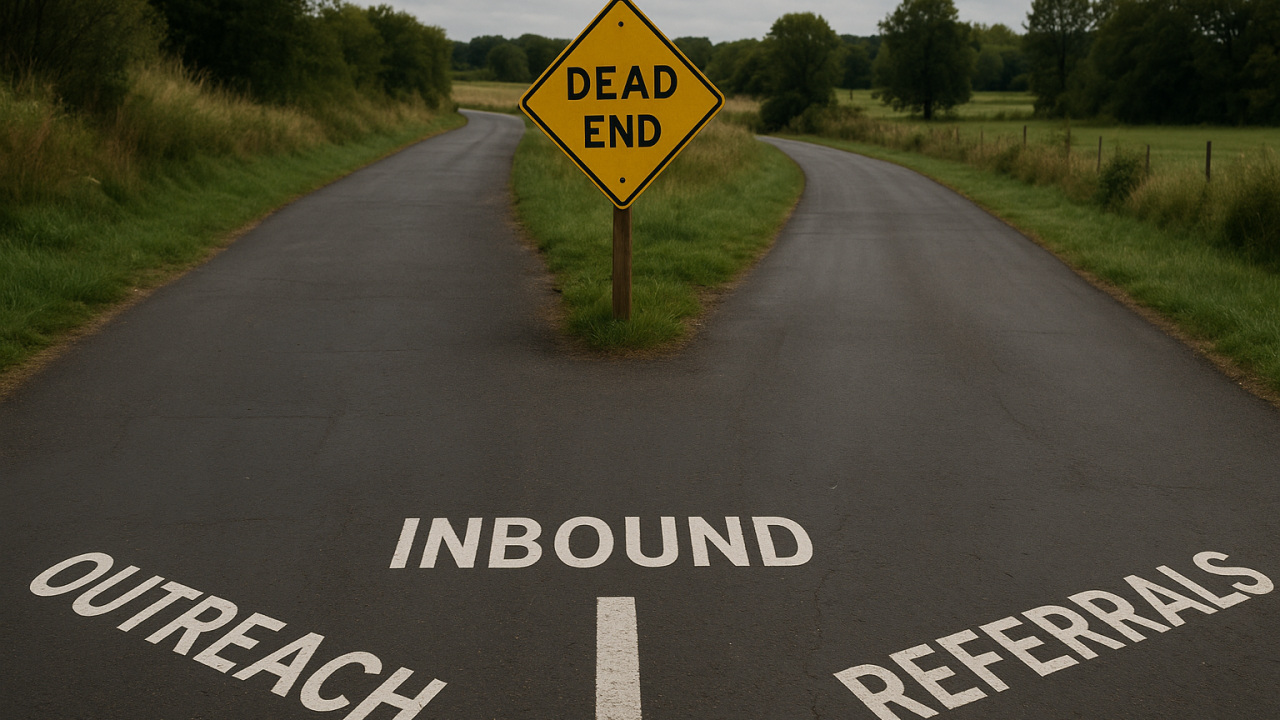
How AI Killed Your Talent Pipeline
I've spent the last year talking to hundreds of recruiters, and the pattern is undeniable. For GTM roles—sales, marketing, customer success—companies are drowning in 1,000+ applications per posting. For technical roles, they're getting maybe 20, because passive candidates are... well, passive. Sounds like abundance and scarcity, right? Wrong. It's a catastrophe on both ends. Reviewing 1,000 resumes to find the 10 that are actually relevant isn't "rigorous hiring." It's terrible ROI. You're burning hours on noise generated by bots, fake profiles, and AI-written resumes that look flawless but mean nothing. And on the technical side? Those 20 applications are usually the same desperate active job seekers who've been unemployed for six months. The people you actually want to hire aren't applying—they're ignoring you.
So what about referrals? Limited reach, limited incentive, and—let's say it quietly—not exactly DEI-friendly when everyone brings in their "buddies" from the same schools and companies. Your network is your network precisely because it looks like you. Referral programs feel good but they don't scale, and they certainly don't solve for building diverse teams. Meanwhile, outreach—the thing that should work—is executed so poorly that even Fortune 10 companies are celebrating 10% response rates like it's a miracle. Ten percent! In a market where candidates are theoretically "looking." Most companies are getting 3-5% if they're lucky. That's not outreach. That's spam with a better logo.
Here's what happened: candidates adopted AI bots faster than recruiters adapted their processes. While you were still asking for cover letters and carefully reviewing LinkedIns, applicants automated everything. They're using ChatGPT to write personalized applications at scale, bots to auto-apply to 100 jobs per day, and AI to optimize their resumes for ATS keywords. You thought you were filtering for quality. You were actually filtering for who had the best prompt engineering. The balance broke. Candidates industrialized application volume while recruiters stayed artisanal. And now here we are: 1,000 applications, 10 interviews scheduled, and people still don't realize they have a 1% chance of getting that interview. It's not a hiring funnel anymore—it's a lottery machine pretending to be merit-based.
Wake up. This isn't a temporary problem you can optimize away with a better ATS or "tighter job descriptions." The entire top-of-funnel is broken. Companies need to rethink recruiting infrastructure, restructure their talent teams, and start using more contingent search models instead of maintaining high overhead while drowning in fake signal. Or—radical idea—be proactive. Stop waiting for the perfect resume to float into your inbox and go find the people you actually want. Test new approaches. Move fast. Because while you're waiting for "the process" to work, your competitors are filling roles in 10 days and you're stuck at 90. The apocalypse already happened. Some of you just haven't noticed yet.
--
Tal Huss is the author of the book Humane Recruiting and why it starts with AI. In his book, Tal exposes how century-old hiring rituals reduce living, breathing humans to flat documents, why recruiting lost its soul in the pursuit of efficiency, and how the current AI arms race between bot-written applications and algorithmic screeners is making everything worse. But he also charts a path forward - one where intelligent systems handle the complexity while humans focus on what they do best: building relationships and recognizing potential.
